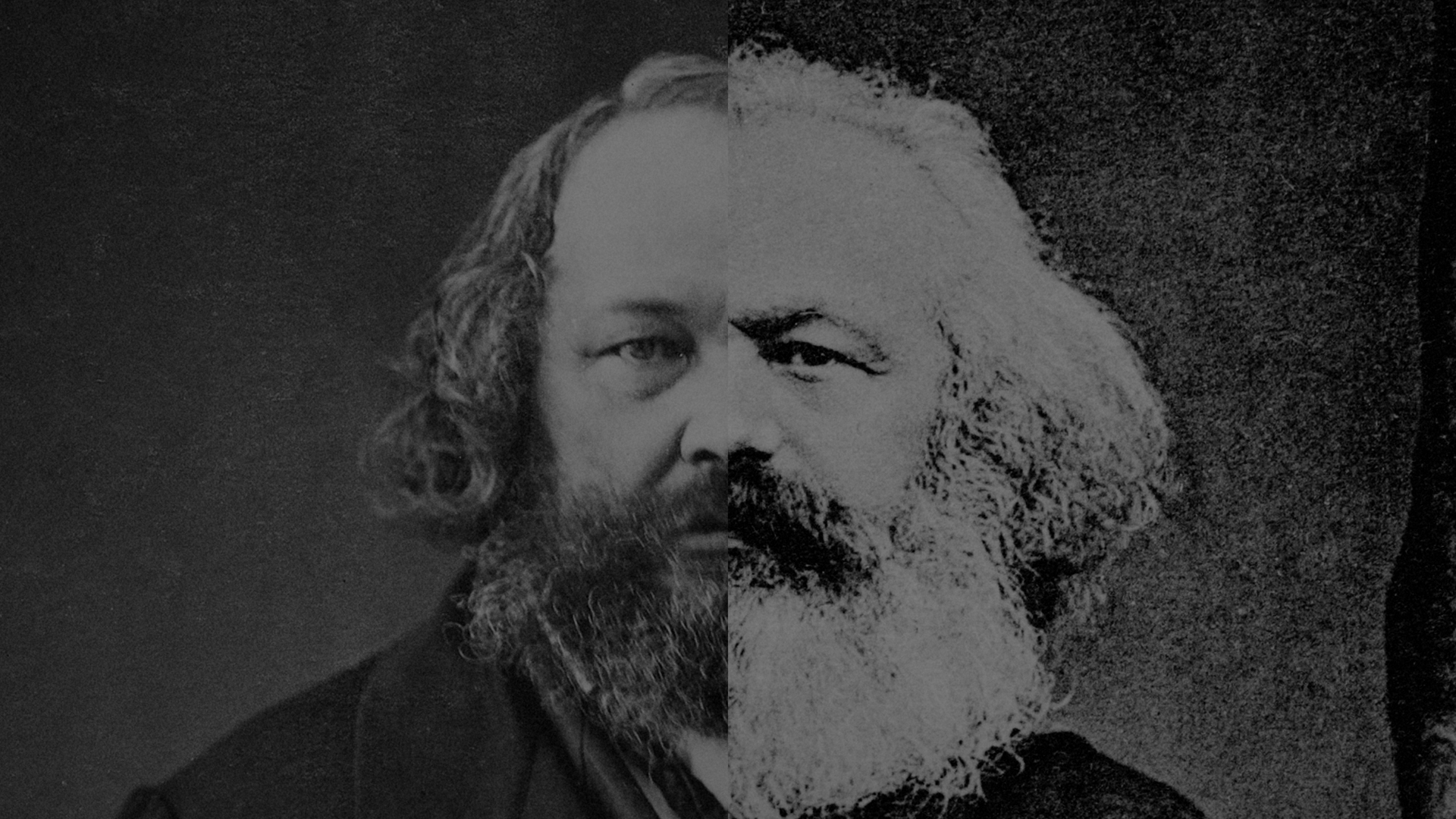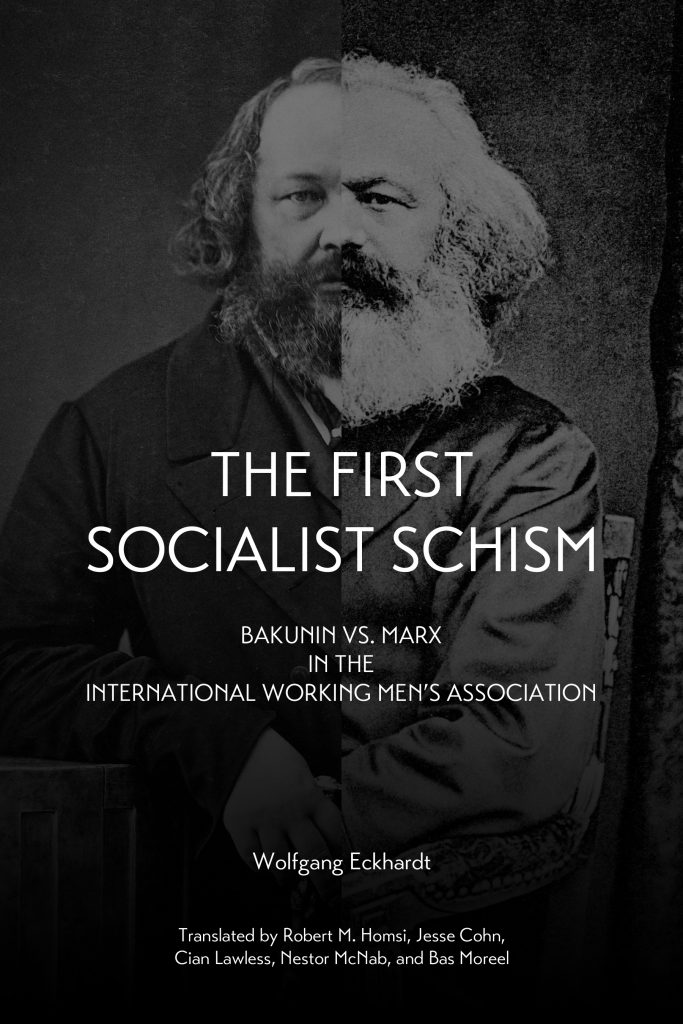by Marcin Anglart
Syndikalisten. Medlemstidning för SAC – Sveriges Arbetares Centralorganisation, Stockholm, no. 6,
December 2016
THE FIRST SOCIALIST SCHISM chronicles the conflicts in the International Working Men’s Association (the First International, 1864–1876/77), which represents an important milestone in the history of political ideas and socialist theory.
In defending their autonomy, federations in the International became aware of what separated them from the social democratic movement that relied on the establishment of national labor parties and the conquest of political power. The split that followed, between centralist party politics and the federalist grassroots movement, was a decisive moment in the history of political ideas. The separate movements in the International — which later developed into social democracy, communism, and anarchism — found their greatest advocates in Mikhail Bakunin and Karl Marx. But the significance of this alleged clash of titans is largely a modern invention. It was not the rivalry between two arch-enemies or a personal vendetta based on mutual resentment that made the conflict between Bakunin and Marx so important but rather the schism between parliamentary party politics aiming to conquer political power and social-revolutionary concepts.
Instead of focusing exclusively on what Marx and Bakunin said, many other contributions to this debate are examined, making this the first reconstruction of a dispute that gripped the entire organization. This book also sets new standards when it comes to source material, taking into account documents from numerous archives and libraries that have previously gone unnoticed or were completely unknown.
It may seem tedious to return once again to the 1800s for a study of the personalities, feuds and organizational experiments that shaped the young labor movement. But when a book like Wolfgang Eckhardt’s The First Socialist Schism appears, the historian in us awakes inevitably. The book is not only an extremely thorough description of the infamous years of the First International, but also an important reminder of the heated debates around organizational principles. Despite the subtitle, it outlines a broad movement beyond the big names; a movement that, with much energy and autonomy, took on the task of organizing a resistance against both state repression and increasing capitalist exploitation. Eckhardt delivers a book packed with excerpts from congressional records, mail correspondence and newspaper articles – of the book’s roughly 600 pages, the bibliography and the footnotes make up almost 200.
Besides providing all these details, the author also manages to visualize the drama and political games surrounding the International in a gripping way, making it difficult to put the book down. Somewhat roughly hewn, there are two tendencies butting against each other, the authoritarian fraction of Marx and Engels on the one hand, and the libertarian fraction with high-profile figures like Bakunin and Guillaume. The former aims to centralize more power in the London-based General Council and advocates mandatory participation in parliamentary elections, while the latter advocates a more autonomous and federalist orientation with emphasis on self-organized unions instead of parliamentary politics – a position that can be named the embryo of what would soon be known as revolutionary syndicalism. The personal undertones of the conflict are indeed disappointing, but they were not as central as often believed. Insofar as they had real effects on the International, it was primarily in the form of Marx’ and Engels’ increasingly paranoid attitude toward Bakunin, who was considered to be behind everything that did not go the way of the General Council. In their increasingly frenetic smear attempts they alienated themselves not only completely from southern European federations, but finally even lost the support of more neutral groupings, which – not least thanks to the exemplary mediation by James Guillaume – joined the libertarian wing. When the International practically split during the dire and burlesque Congress of the Hague in 1872, it basically led to an implosion of the General Council, where some disinterested German Social Democrats and small groups from various other countries had more delegates combined than the federations representing the libertarian current. All in all, this is a book which is crowded with facts and which not only gives an insight into an infected and partly personal conflict, but also says a lot about the different movements, about organizational principles and views on autonomy. At the same time it is heartwarming to soak up some of the energy, solidarity and optimism that pervaded the labor movement’s pioneers. In conclusion, the words uttered by Rafael Farga Pellicer during the Spanish Federation’s founding congress exemplify the prevailing spirit well: »We want justice and therefore we want that the rule of capital, the church and the state cease to exist in order to build upon their ruins the government of all – anarchy, the free federation of free associations of workers.
Translated from the Swedish original: Syndikalisten. Medlemstidning för SAC – Sveriges Arbetares Centralorganisation, Stockholm, no. 6, December 2016, p. 14







